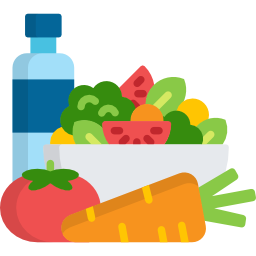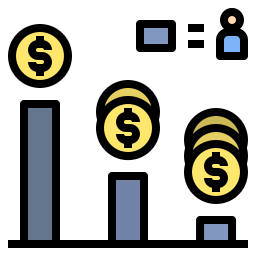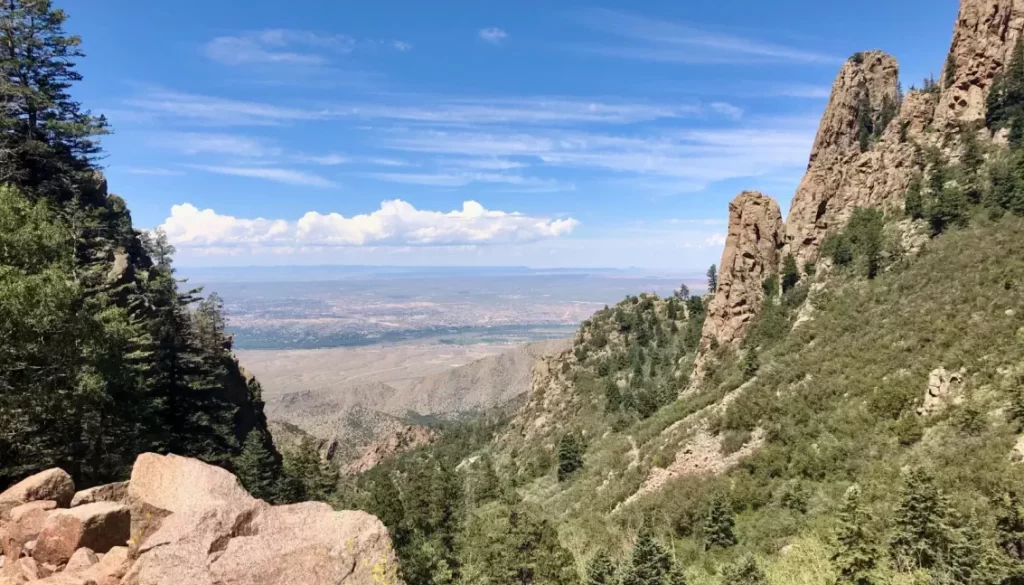New Mexico Senior Assistance Programs, Benefits, and Grants (2026)
 Senior Population: 566,724
Senior Population: 566,724 Median Age: 70.9
Median Age: 70.9 Veterans: 13.3%
Veterans: 13.3% Disability: 35.4%
Disability: 35.4% Renters: 16.4%
Renters: 16.4% With Social Security Income: 75.6%
With Social Security Income: 75.6% With Food Stamp/SNAP Benefits: 15.3%
With Food Stamp/SNAP Benefits: 15.3% Below 100% of Poverty Level: 14.7%
Below 100% of Poverty Level: 14.7%Last updated:
This people-first guide brings together the most reliable, current programs that New Mexico seniors actually use—what they cover, who they help, how to apply, and where to get real human help. Links go to official government or established program sites.
If You Need Emergency Help
- Life-threatening emergency: Call 911.
- Mental health, substance use, or suicidal crisis: Call or text 988, or use the chat at the official 988 Lifeline.
- If you’re unsafe or suspect elder abuse/neglect: Contact the New Mexico Aging & Long-Term Services Department (ALTSD) for Adult Protective Services via the ALTSD website: New Mexico Aging & Long-Term Services Department (ALTSD). Use their contact page to reach intake.
- Not sure where to start? Call 211 if available in your county (coverage varies) or visit Find Your Local 211 to get referrals for food, shelter, utilities, and more.
- Veterans in crisis: Call the Veterans Crisis Line at 988, then press 1 or visit Veterans Crisis Line.
Tip: If phone lines are busy, use the websites linked above to find current hours and local numbers.
Key Takeaways
- New Mexico offers multiple senior-focused programs for healthcare (Medicaid), food (SNAP, CSFP, congregate/home-delivered meals), utilities (LIHEAP), home repairs/modifications (USDA Section 504, MFA programs), transportation (BCBSNM, DOT Park & Ride, local providers), and dental care (UNM Dentistry, NM Community Dental).
- Applications often require proof of income, ID, residence, and sometimes medical need. Many programs prioritize those with the lowest incomes or special needs (disability, homebound, rural).
- Rental aid created during the pandemic (Emergency Rental Assistance) may be closed to new applicants. Check current status before applying via the state’s site.
- Start with the state’s one-stop aging resource: ALTSD Area Agencies on Aging and the main site: New Mexico Aging & LTSD.
- Get help with applications through local senior centers, Area Agencies on Aging, and established nonprofits listed below.
Snapshot of Seniors in New Mexico
According to the 2023 American Community Survey (ACS) for New Mexico’s 65+ population (source: U.S. Census Bureau’s ACS; browse data at data.census.gov):
| Measure | Value |
|---|---|
| Senior population (65+) | 421,772 |
| Share of state population | 19.9% |
| Female | 54.1% |
| Male | 45.9% |
| Median age among seniors | 73.3 |
| Seniors with a disability | 37% |
| Seniors with Social Security income | 88.4% |
| With SNAP benefits | 13.3% |
| Below 100% of poverty level | 13.7% |
Reality check: These figures show a significant number of older adults living on fixed incomes and many with disabilities. That’s why programs for food, utilities, and home safety are vital.
How to Use This Guide
- Start with benefits that address your most urgent need (food, utilities, medical care).
- Use the tables for quick comparisons.
- Click the program links to confirm eligibility and get the latest forms.
- If you get stuck, contact your Area Agency on Aging (AAA) for free help: Find AAAs in New Mexico.
Table 1: Quick Start — Where to Apply for Common Needs
| Need | Best First Stop | What It Does | Apply / Learn More |
|---|---|---|---|
| Healthcare coverage | New Mexico Medicaid (Centennial Care/Turquoise Care) | Medicaid for low-income seniors; long-term services | NM HSD Medicaid overview |
| Food (monthly assistance) | SNAP | Monthly funds on EBT card | SNAP in New Mexico |
| Food (boxes for 60+) | CSFP | Monthly food box with staple items | CSFP in NM |
| Meals in group settings | Congregate Meals | Free/low-cost meals at senior centers | Meals & Nutrition (ALTSD) |
| Meals at home | Home-Delivered Meals | Meals delivered to homebound seniors | Home-Delivered Meals (ALTSD) |
| Utilities (heating/cooling) | LIHEAP | Help with energy bills | LIHEAP NM |
| Home repairs | USDA Section 504 | 1% loans (any age) and grants (62+) for health/safety fixes | USDA Section 504 (NM) |
| Home rehabilitation/mods | New Mexico MFA | Rehab, energy efficiency, accessibility | MFA Home Rehabilitation |
| Dental care (low-cost) | UNM Dentistry Clinic | Full range, lower-cost academic clinic | UNM Dentistry |
| Dental care (sliding scale) | NM Community Dental | Sliding fee based on income | NM Community Dental discounts |
| Transportation (medical) | BCBSNM (Medicaid plans) | No-cost rides for Medicaid-covered care | BCBSNM medical transportation |
Financial Assistance and Income Support
Supplemental Security Income (SSI)
- What it is: Monthly cash benefit for people with limited income/resources who are aged 65+ or have a disability. The home you live in and one vehicle usually don’t count as assets.
- Why it helps: Can stabilize basics—rent, food, utilities—when Social Security alone isn’t enough.
- How to apply: Online or by phone through SSA. Details: Supplemental Security Income (SSI) — SSA
- Reality check: Asset limits are strict (generally $2,000 for individuals). If you’re close to the limit, talk to SSA before moving money around.
Senior Employment (Part-time, Training)
- SCSEP (55+): Paid, part-time community service training for low-income older adults, about 20 hours/week at minimum wage. Helps re-enter the workforce with current skills.
- State Senior Employment Program: State-funded option similar to SCSEP, may include training and limited financial assistance.
- Learn more and contact: New Mexico Employment Programs (ALTSD) or call 1-505-469-4193.
Property Tax Relief (Check Current Rules)
- New Mexico offers senior-related property tax relief via exemptions or rebates that depend on age, income, and residency.
- Where to verify: Visit the New Mexico Taxation and Revenue Department and your county assessor’s office for current forms, deadlines, and income limits.
- Tip: Bring your latest tax return, ID, and proof of residence when you inquire.
Housing and Home Repair
Rental Assistance
- Pandemic-era Emergency Rental Assistance (ERAP) programs in many states have closed to new applications. New Mexico’s ERAP status can change based on funding.
- Where to check status: New Mexico Department of Finance & Administration — Local Government Grants or call 505-827-4984.
- Reality check: If ERAP is closed, ask your local AAA or 211 for emergency rent referrals (churches/charities often bridge short-term needs).
Section 8 Housing Choice Voucher
- What it is: Helps pay a portion of rent in private housing.
- Who administers: Local Public Housing Agencies (PHAs) and, in some areas, the New Mexico Mortgage Finance Authority (MFA).
- How to find open waitlists: Use HUD’s contact list to find PHAs by city/county: Find New Mexico PHAs (HUD). Also visit Housing Programs at MFA for statewide options.
- Reality check: Waitlists can be long or temporarily closed. Ask about preferences (e.g., elderly/disabled, homeless) and portability.
Home Repairs & Accessibility
USDA Section 504 Home Repair (Rural)
- What it offers:
- Loans up to $40,000 at 1% interest (up to 20-year term) for necessary repairs.
- Grants up to $10,000 for homeowners 62+ to remove health/safety hazards (must stay in the home 3+ years or repay grant).
- Who qualifies: Low-income homeowners in eligible rural areas; home must be owner-occupied.
- Learn more and apply: USDA Single Family Housing Repair Loans & Grants — New Mexico
New Mexico Mortgage Finance Authority (MFA) — Home Rehabilitation
- What it offers: Repairs, accessibility modifications, and energy-efficiency upgrades; can cover major systems (e.g., heating).
- Who qualifies: Low- to moderate-income homeowners; details vary by program.
- Learn more: MFA Home Rehabilitation & Energy Efficiency
Habitat for Humanity (Local)
- What it offers: Volunteer-driven repairs for non-structural issues, accessibility (e.g., wheelchair ramps), and small fixes. Fees often based on income.
- Check options: Habitat for Humanity in Albuquerque and search for nearby affiliates.
Salvation Army — Silvercrest Senior Residences
- What it is: Affordable independent-living apartments for seniors with added services (availability varies).
- Learn more for New Mexico: Salvation Army New Mexico
Table 2: Home Repair & Housing Programs at a Glance
| Program | Who It Helps | What’s Covered | Notes & How to Apply |
|---|---|---|---|
| USDA Section 504 | Low-income homeowners in rural NM; grants for 62+ | Critical repairs, health/safety hazards, accessibility | USDA Section 504 in NM |
| MFA Home Rehabilitation | Low/moderate-income homeowners | Rehab, energy efficiency, accessibility, major systems | MFA Home Rehabilitation |
| Habitat for Humanity | Seniors needing small repairs | Minor fixes, ramps, home safety | Habitat for Humanity Albuquerque |
| Salvation Army Silvercrest | Low-income seniors | Affordable living with services | Salvation Army New Mexico |
| Section 8 (HCV) | Low-income renters | Rent subsidy in private housing | Find PHAs (HUD) |
Tip: For weatherization (insulation, HVAC efficiency), ask your AAA or MFA about current weatherization providers and income limits.
Healthcare, Long-Term Care, and Prevention
New Mexico Medicaid (State Plan and Long-Term Services)
- What it is: Medicaid for low-income residents. New Mexico’s program has been known as “Centennial Care” and has undergone updates; use the state’s official page for current plan names and benefits.
- What’s covered: Doctor visits, hospital care, prescriptions, preventive care; some seniors may qualify for home- and community-based long-term services.
- Learn more and check eligibility: NM Medicaid overview (HSD) or call HSD at 1-800-283-4465.
- Reality check: You may need documents like ID, proof of citizenship/eligible status, proof of income, and medical bills. Renewals are strict—watch for mail.
Medicare
- What it is: Federal health coverage starting at 65 (or earlier with disability). Pair with Medigap, Medicare Advantage, or Part D for drug coverage.
- Where to compare and enroll: Medicare.gov
- Free counseling (SHIP): Contact New Mexico’s aging network via ALTSD to find Medicare counseling (often through the ADRC/AAA): Find your AAA.
Falls Prevention
- Why it matters: Fall-related injuries are a leading cause of ER visits and loss of independence among older adults.
- Program info: New Mexico Falls Prevention Coalition and phone 1-505-476-4757.
- Tip: Ask your doctor about balance screening; many senior centers offer exercise classes proven to reduce falls.
Area Agencies on Aging (AAAs)
- Services: Care coordination, home care referrals, caregiver support, disease prevention, adult day services, and help navigating benefits.
- Start here: New Mexico Area Agency on Aging or call the numbers listed on that page.
Dental Care (Low-Cost and Sliding Scale)
- New Mexico Community Dental (Sliding Fee)
- Services: X-rays, cleanings, fillings, extractions, crowns, whitening, and more.
- Sliding fee scale may reduce costs to as low as $20 depending on income.
- Details: Income-Based Discount Program (NM Community Dental)
- University of New Mexico (UNM) Dentistry
- Services: Full range including implants, crowns, oral surgery, dentures, and root canals—often at lower cost in a teaching setting.
- Details and appointments: UNM Dentistry
Reality check: Dental coverage is limited under Medicare, and Medicaid adult dental benefits vary. Budget for crowns/implants, and ask about payment plans.
Food and Nutrition
Congregate Meals (Senior Centers)
- What it is: Free or low-cost meals at senior/community centers, plus social activities and nutrition education.
- Learn more: Meals & Nutrition Programs (ALTSD)
- Tip: Great option if you can travel to a center and want social connection.
Home-Delivered Meals
- What it is: Hot, cold, or frozen meals delivered to homebound seniors.
- Learn more: Home-Delivered Meals (ALTSD)
Commodity Supplemental Food Program (CSFP)
- What it is: Monthly food box for income-eligible seniors (60+), including milk, cereal, canned fruit/veg, and other staples.
- Learn more: CSFP in New Mexico
Senior Farmers’ Market Nutrition Program (SFMNP)
- What it is: Coupons for eligible seniors to buy locally grown fruits, vegetables, honey, and herbs.
- Learn more: USDA SFMNP — Seniors
SNAP (Food Stamps)
- What it is: Monthly EBT benefits to buy groceries or seeds to grow food.
- Learn more and apply: SNAP in New Mexico (HSD)
- Tip: Many markets double SNAP dollars on produce (“Double Up Food Bucks”)—ask your local market.
Table 3: Food Programs Overview
| Program | Who It Helps | What You Get | Where to Learn More |
|---|---|---|---|
| Congregate Meals | Seniors able to visit centers | Hot meals + activities | ALTSD Meals & Nutrition |
| Home-Delivered Meals | Homebound seniors | Hot/cold/frozen delivered meals | ALTSD Meals & Nutrition |
| CSFP | 60+ with low income | Monthly food box | CSFP in NM |
| SFMNP | Income-eligible seniors | Coupons for local produce | USDA SFMNP Info |
| SNAP | Low-income households | Monthly EBT benefits | SNAP NM |
Utilities, Phone, and Internet
LIHEAP (Energy Bill Help)
- What it is: Help with heating/cooling bills, based on income and household size.
- Learn more and apply: LIHEAP — NM HSD
- Tip: Apply before winter if possible; bring your latest utility bill and proof of income.
Lifeline (Phone and Broadband Discount)
- What it is: Federal monthly discount on phone or broadband through participating providers (one Lifeline benefit per household).
- Learn more and apply: Check your provider’s Lifeline page—for example, CenturyLink/Lumen Lifeline information.
- Reality check: The separate Affordable Connectivity Program (ACP) stopped taking new applications in 2024 due to funding. For updates, see the FCC’s page: FCC ACP Program.
Transportation
- Medical Rides (Medicaid Plans): If you have Medicaid, your plan may include free non-emergency medical transportation. For BCBSNM details: BCBSNM Medical Transportation
- Park & Ride (Low-Cost): State-run bus service with low fares (from about $2) across key corridors; excludes public holidays: NM DOT Park & Ride
- Local Dial-a-Ride (Example: ZTrans/Ruidoso): Door-to-door rides for seniors within certain areas: ZTrans Services
- More Providers Statewide: See listings through NM Department of Health: Transport Services List (NM DOH)
Tip: Always ask if wheelchair or mobility device transport is available and if you must book in advance (often 48–72 hours).
Charities and Community Organizations
- Silver Horizons
Financial help with household and utility bills; minor home safety repairs; free groceries for adults 50+.
Learn more: Silver Horizons - Catholic Charities of New Mexico
Housing assistance for seniors at risk of homelessness; transportation for medical and essential trips (usually 60+).
Learn more: Catholic Charities — Central New Mexico - The Salvation Army
Food pantries, clothing, referrals, and emergency financial aid as funds allow.
Learn more: Salvation Army New Mexico
Reality check: Funds are limited and often first-come, first-served. Be ready with ID, proof of residence, and bills/eviction notices.
Veterans’ Benefits in New Mexico
- Rural Veterans Transportation Program (NMDVS)
- What it is: Free round-trip rides to VA medical appointments for veterans in rural areas (book at least 3 days ahead).
- Learn more: NMDVS Rural Veterans Transportation
- VA Health Care (Statewide)
- Services include emergency care, x-rays, chronic disease management, and specialty care.
- Find services: VA New Mexico Health Care
- New Mexico Veterans Integration Centers (NMVIC)
- What they do: Provide clothing, furniture, appliances, food, and housing support for veterans.
- Learn more: New Mexico VIC
- New Mexico State Veterans’ Home
- What it is: Long-term care and assisted living for eligible veterans (fees apply).
- Details: NM State Veterans’ Home
Tip: Bring your DD-214 and VA ID when seeking services. Ask about Aid & Attendance (VA pension supplement) for long-term care needs via the VA.
Table 4: Transportation & Veterans Help — Quick View
| Program | Who It Helps | What You Get | Where to Learn More |
|---|---|---|---|
| NMDVS Rural Transport | Veterans in rural NM | Free round-trip medical rides (book ahead) | NMDVS Rural Veterans Transport |
| VA Health Care | Eligible veterans | Full medical services via VA | VA New Mexico Health Services |
| NMVIC | Veterans and families | Food, clothing, furniture, housing support | New Mexico VIC |
| NM State Veterans’ Home | Veterans needing long-term care | Residential care (fee-based) | State Veterans’ Home |
Frequently Used Phone and Online Care
- Medicaid/LIHEAP/SNAP general line (HSD): 1-800-283-4465
- Medicaid overview: NM HSD Medicaid
- LIHEAP: NM LIHEAP
- SNAP: SNAP NM
- ALTSD/AAAs: Area Agencies on Aging (ALTSD)
- Dental: UNM Dentistry, NM Community Dental
Keep this list handy when you call—have your ID, Social Security Number, and address ready.
Inclusive Resources and Tips
LGBTQ+ Seniors
- Statewide support: Check local community centers and inclusive senior centers via ALTSD: Find AAAs
- National hotline and resources: SAGE National LGBTQ+ Elder Hotline (connects to resources, info, and support)
- Local organizations (for support, advocacy, and referrals):
- Equality New Mexico (EQNM)
- Transgender Resource Center of New Mexico
Tip: Ask your care providers if they are LGBTQ+-affirming. You can switch providers in many plans.
Disabled Seniors
- Apply for or maintain benefits through SSA and Medicaid:
- Independent living, home modifications, and assistive technology: Ask your AAA for referrals.
- Transportation: Confirm paratransit options via your local transit service; see NM DOH transport list.
Tribal and Native American Seniors
- New Mexico Indian Affairs Department: Indian Affairs Department (IAD)
- Indian Health Service (IHS), Albuquerque Area: IHS Albuquerque Area
- Housing and elder services are often administered by Pueblos, Tribes, and Nations—contact your tribal office for senior services, housing, and transportation.
Tip: You may be eligible for both IHS and state programs (Medicaid, SNAP).
Rural Seniors and Families
- Repairs and safety: Start with USDA Section 504.
- Transportation: Use local dial-a-ride and Park & Ride: NM DOT Park & Ride, ZTrans.
- Internet and phone: Use Lifeline. For ACP updates (currently wound down), see FCC ACP.
- Food: Ask about mobile food pantries through your AAA and Silver Horizons.
Resources by Region (How to Find Local Help Fast)
New Mexico services are coordinated statewide but delivered locally. Use these pointers to find the closest help:
- Statewide Aging Network and Senior Centers: Meals & Nutrition — Find local sites and Area Agencies on Aging.
- Albuquerque and Bernalillo County:
- Congregate meals, senior centers, and SNAP offices are plentiful; call your AAA via ALTSD link above.
- Dental: UNM Dentistry; NM Community Dental
- Charity aid: Silver Horizons, Catholic Charities — Central NM
- Santa Fe / Los Alamos / Eldorado at Santa Fe / White Rock:
- Contact local senior centers via ALTSD for meals and transportation.
- Las Cruces (Doña Ana County):
- Use ALTSD’s AAA directory for meal sites and caregiver support; ask about local paratransit.
- Ruidoso / Lincoln County:
- Transportation: ZTrans Dial-A-Ride
- Farmington / Gallup / McKinley & San Juan Counties:
- Contact local senior centers via ALTSD and check tribal offices for Native American programs.
- Statewide transit/medical rides: BCBSNM Medical Transportation, NM DOT Park & Ride
If you don’t see your town here, start with ALTSD’s AAA page and your county senior center directory.
Table 5: Dental, Health, and Utility Quick Links
| Category | Resource | Link |
|---|---|---|
| Health Coverage | NM Medicaid (HSD) | NM Medicaid Overview |
| Medicare | Medicare.gov | Medicare Official Site |
| Dental (Sliding Scale) | NM Community Dental | Discount Program |
| Dental (Teaching Clinic) | UNM Dentistry | UNM Dentistry Services |
| Utilities | LIHEAP (HSD) | Apply for LIHEAP |
| Phone/Broadband | Lifeline | Lifeline Info |
Frequently Asked Questions (FAQs)
- How do I apply for Medicaid in New Mexico?
- Apply online or find forms and instructions at the state’s site: NM Medicaid overview (HSD) or call 1-800-283-4465. You’ll need proof of income, identity, and residency.
- I can’t afford my power bill. Where do I go?
- Apply for LIHEAP: LIHEAP in NM. Ask your utility about budget billing or payment plans.
- Are there free or low-cost dental options?
- Yes. Try UNM Dentistry and NM Community Dental’s sliding scale. Book early—appointments fill fast.
- Can I get rides to my doctor appointments?
- If you’re on Medicaid, most plans cover non-emergency medical transportation—see BCBSNM Medical Transportation. Also check local dial-a-ride (e.g., ZTrans) and NM DOT Park & Ride.
- Are there programs for home repairs or accessibility changes?
- Yes: USDA Section 504 and MFA Home Rehabilitation. Habitat for Humanity affiliates may help with ramps and minor fixes: Habitat ABQ.
- I need food now. What’s fastest?
- Call 211 or your local senior center for immediate options. For regular help, apply for SNAP, ask about CSFP, and check congregate/home-delivered meals: ALTSD Meals & Nutrition.
- My rent is overdue. Is emergency rental help available?
- Pandemic ERAP funding may no longer accept new applications. Check status at NM DFA Grants and ask local charities like Catholic Charities and Salvation Army NM for emergency aid.
- Who can help me understand my Medicare choices?
- Contact your local AAA through ALTSD for free, unbiased counseling (SHIP): Find Your AAA.
- I’m a veteran. What should I use first?
- Register with the VA for health benefits: VA NM Health Care. For rides, see NMDVS Rural Veterans Transportation. For basic needs, contact NMVIC.
- I live far from town. What’s realistic for me?
- Apply by mail/online when possible (SNAP, Medicaid, LIHEAP). Use Park & Ride or dial-a-ride (e.g., ZTrans). Ask the AAA about mobile food deliveries and wellness checks.
Resources (Official and Established Sources)
- State Aging & Long-Term Services Department: ALTSD main site | Area Agencies on Aging | Meals & Nutrition
- Human Services Department (HSD): Medicaid overview | LIHEAP | SNAP | CSFP
- Housing & Repairs: USDA Section 504 (NM) | MFA Home Rehabilitation | HUD PHA Contacts (NM)
- Transportation: BCBSNM Medical Transportation | NM DOT Park & Ride | ZTrans Services | NM DOH Transport Listings
- Dental: UNM Dentistry | NM Community Dental — Income-Based Discount
- Charities: Silver Horizons | Catholic Charities (Central NM) | Salvation Army NM
- Veterans: NMDVS Rural Veterans Transportation | VA NM Health Services | New Mexico VIC | State Veterans’ Home
- Indigenous/Tribal: Indian Affairs Department (NM) | IHS Albuquerque Area
- Broadband/Phone Support: Lifeline info (CenturyLink/Lumen) | FCC ACP (program status)
- Statistics: U.S. Census Bureau — data.census.gov
Disclaimer
Program details—including eligibility, documents required, benefit amounts, and deadlines—can change. Always confirm the latest information using the official links provided or by contacting the agency directly. This guide is informational and is not legal or financial advice.
About This Guide
by the GrantsForSeniors.org Editorial Team
The GrantsForSeniors.org editorial team has been building benefit and assistance resources for seniors nationwide since 2020. We research programs across all 50 states by reviewing government websites, checking agency updates, and gathering information from available sources.
Our Commitment to You:
- Experience & Expertise: The information in this guide is compiled and reviewed by a team with experience in senior services and financial aid programs. We are committed to sharing our knowledge to help you find the support you need.
- Authority & Trust: We rely on verified sources, including government agencies, non-profit organizations, and official program websites, to ensure the accuracy of our content. Our goal is to be a trusted authority you can rely on for credible information.
- Clarity & Accessibility: We understand that seeking financial assistance can be challenging. This guide is designed to be clear and easy to understand, breaking down complex topics into actionable steps.
While we work hard to provide the most accurate information available, please note that program details and eligibility requirements can change. We recommend always checking with the official program source or agency website for the most current information, as we are not official agencies but rather compile available information.
- Last Updated: August 2025
- Sources Verified: August 2025
- Next Review: February 2026
If you find outdated information, discover new resources, or have questions, please contact us at info@grantsforseniors.org. We’re here to help seniors find resources that can make a real difference in their daily lives.


 Data is taken from 2024 (latest): ACS 1-Year Estimates Subject Tables.
Data is taken from 2024 (latest): ACS 1-Year Estimates Subject Tables.

